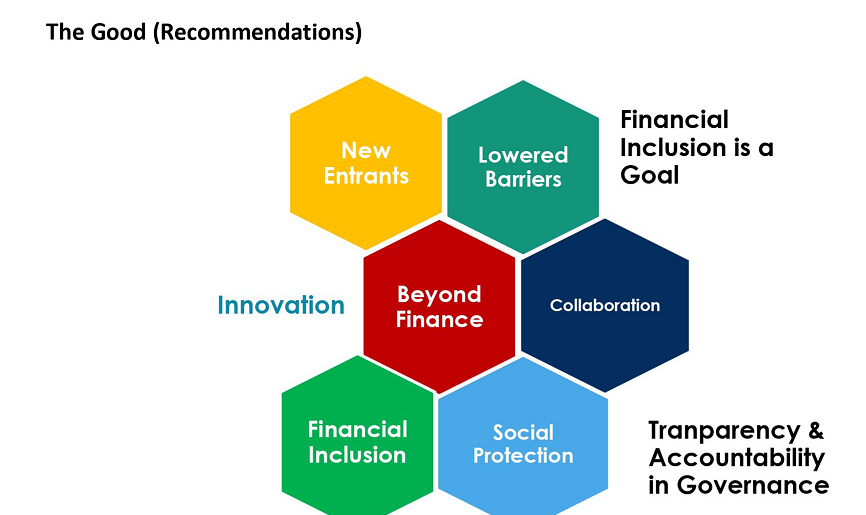Onyeka Akpaida May 25, 2020

Like everyone else, no one envisioned the world would be at a standstill for 6 weeks+ talk less of experiencing a global pandemic; as is the custom of uninvited guests, COVID-19 decided to show up regardless.
The economic disruption of this pandemic will largely come from ‘’aversion posture” taken by people and institutions to avoid contracting the virus. These include government-imposed lockdowns, business closures and reduction in activities by people which will inadvertently affect all sectors of the economy and translate into reduced income for suppliers and consumers.
Bringing it home, our 2020 fiscal budget revenue assumptions were made with a $57 per barrel benchmark; however, the oil price is currently below $30. This is worrisome to me as we have been unable to sufficiently set aside buffers against these daunting economic challenges. incoming economic onslaught. It is my hope that coming out of this pandemic, Nigeria is able to commence on a dogged economic diversification drive.
This article will be addressing the impact of the Pandemic in the financial inclusion space and recommendations to stakeholders- fintech, social enterprises and government on how best to mitigate and innovate in this short and medium term.
The Not-So-Ugly (Covid-19 Impact)

Remote Work: This is inevitable as many bricks and mortar financial service providers have to swim against this tide that is uncharted territory. The banks are sequestered and so are the customers; financial service providers are leveraging on every office and communication tool to keep work going. You can find us in front of our computers with the webcam on having your ‘beloved’ Monday morning meeting with your line manager trying to explain why you have been unable to sign on that customer (CBN has released intervention funds; No excuses!!)
Loans & Lending: There will definitely be a surge in the requests for loan facilities to meet up to daily and expensive demand of staying at home; I can imagine most lending institutions and apps are inundated with loan requests given the ease of getting credit in less than 5 minutes.
Loan default is guaranteed as some workers have been laid off and those who earn daily wages in non-essential sectors will be unable to meet up with their repayments.
The good news is the Central Bank of Nigeria has directed that moratorium be given to credit facilities and most financial service providers have taken a position by providing up to 3 months moratorium to ease the burden on borrowers. The CBN has also directed that interest rates on all applicable intervention funds be reduced from 9% to 5% (be sure to check that it has been done by your bank)
It is also expected that lending institutions will reduce the credit limits of customers to mitigate against further default.
Mobile Money Usage: Following the lockdown measure and call for social distancing, mosttransactions will be conducted via mobile money apps and agents to cater to under-served and peri-urban communities.
According to EFINA Access to Finance 2018 Survey, Mobile money usage increased by 2.2% from 2016 and we expect these numbers to increase exponentially by the end of 2020 with the lockdown being a key catalyst.
Financial Exclusion Gap: The estimated number of financially excluded adult Nigerians as of 2018 was 36.6mm and given the lockdown situation following the pandemic, many financial services providers are unable to implement planned projects in terms of onboarding customers.
Statistics also show that a lack of regular income is the major reason for financial exclusion and it is inevitable that the economic impact of the pandemic which includes loss of income particularly with adults that earn daily wages will not do us any favours in closing this gap.
The Good (Recommendations)

Financial Inclusion Goal
The 2018 Efina access to finance survey revealed that 36.6 million adult Nigerians are financially excluded and if you are gender-focused like I am, it will interest you to know that
20.5 million of the excluded population are women.
There is a huge opportunity for new players in the financial inclusion space irrespective of your business location- Urban centres or rural communities and if you are passionate about under-served communities, there are over 28 million excluded people in this demography.
Reduction in barriers to entry by regulators in the financial inclusion space such as high cost of fees will also encourage more players and ultimately bring us closer to Nigeria’s financial inclusion goal of achieving a 20% reduction in the excluded population by 2020.
Fintech and Social Enterprises
Opportunities for fintech companies to innovate and go beyond payments and transactions. One of the many effects of the pandemic and lockdown measures is an increase in illnesses especially in rural and densely populated households/communities where social distancing is nothing but a pipe dream
This is the time to collaborate with health management and pension organisations to develop a product that caters to the vulnerable and under-served.
Micro & SME Businesses and Households
The Central Bank of Nigeria introduced the N50 billion Targeted Credit Facility (TCF) in March 2020 as a stimulus package to support households and micro, small and medium enterprises (MSMEs) affected by the COVID-19 pandemic. This facility will be disbursed through the NIRSAL Microfinance Bank (NMFB) with a moratorium period of up to 1 year.
You can access the guidelines and application via the NMFB website https://nmfb.com.ng/
Government Agencies
As it is, the government is fast losing the trust of its citizens as the horror stories from the implementation of social protection programmes are highly discouraging.
Although we are in a too little too late situation, I will still recommend that the government makes financial inclusion and biometric registration an essential part of its social registration process. This will reduce the risk of paying “ghost beneficiaries” as each person registered will have the BVN as a unique identifier.
There is also a need for a membership/association system to be created for hawkers and roadside sellers who fall under the category of micro-businesses. Once they are registered, their associations can request for a facility such as the COVID relief for affected businesses. The association will be responsible for disbursement, monitoring and repayment of the facility.

Leave a Reply